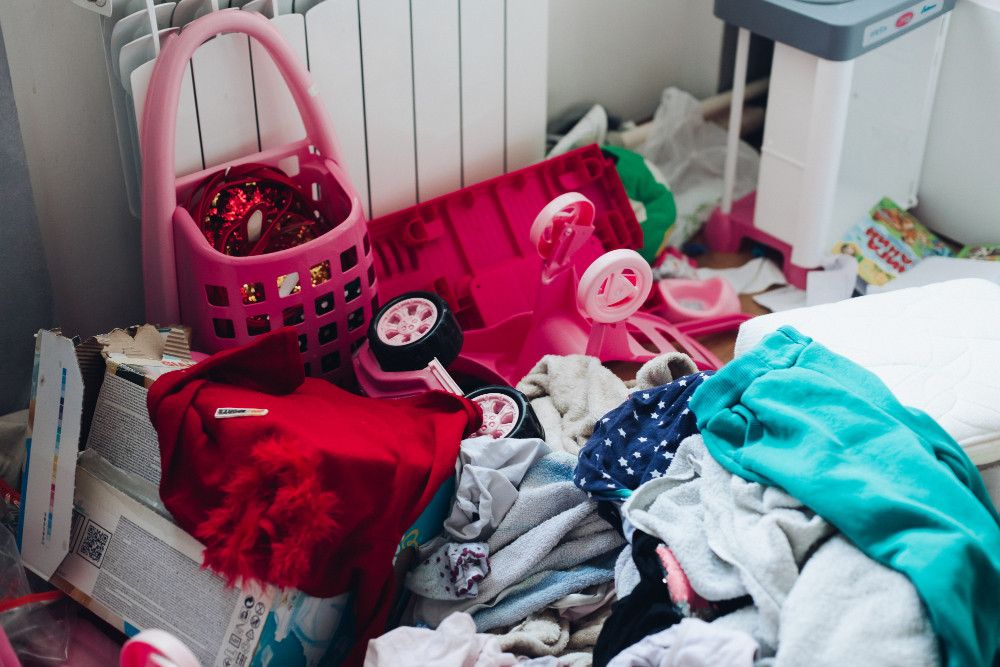Have you ever met someone who likes to collect various things? In addition to collecting a lot of things, they find it difficult to dispose of items that are no longer useful, so the items are stockpiled in one room until they are full. They also have the assumption that the item might have benefits in the future.
If so, they may be suffering from hoarding disorder, a condition characterized by the compulsive accumulation of useless possessions to the point where they negatively impact daily functioning.
What is Hoarding Disorder?
The tendency to hoard items that are either unusable, useless, or have no value is known as hoarding disorder. They may experience stress when trying to get rid of these items. Many people hoard items on the grounds that they may be useful in the future or that they have historical and sentimental value.
The items hoarded generally vary from old magazines or newspapers to clothes, household appliances, plastic bags, and other items that have been damaged and cannot be used. Sometimes, people who like to hoard are not only happy to collect goods but also living objects such as pets. However, these pets usually do not receive proper care.
The Difference between Hoarding and Collecting
Hoarding is different from collecting, like collectors do. Collectors will usually display and organize their collections neatly and put them in a safe place.
As for hoarders, they generally buy things on impulse without a specific plan beforehand. They also only store in a makeshift place and not in a special place. Usually, hoarders will just pile things up in a messy manner that is difficult to retrieve.
Is Hoarding a Mental Health Disorder?
According to the Cleveland Clinic, hoarding behavior is a mental disorder that is treatable with a variety of appropriate therapies. This behavior is a problem that needs serious attention if:
- The amount of stuff that is hoarded is already very disruptive to daily life. In the sense that these piles of items make it impossible for a person to access their bed or other rooms properly.
- The pile of items significantly affects the quality of life of oneself and other family members
These piles of stuff can be everywhere, leaving them with no free space at home. A home that is supposed to be a sanctuary can become an unhealthy and unsafe place to live.
Hoarding behavior is one of the most difficult mental problems to deal with. People who have this condition often do not see that their behavior is a problem for themselves and others. Some people are aware of the problem but hesitate to seek help because they feel ashamed, guilty, or even humiliated by it.
Causes and Symptoms of Hoarding
According to the NHS, it is still unclear why people hoard. This can be related to various other factors or conditions. For example, someone wants to remember events or mementos from other people or valuable events in their life so they choose to keep various items that have emotional value.
In many cases, stressful and traumatic events, such as death, can also trigger a person to hoard. People with hoarding disorder have a strong need to store and save their objects.
Signs of someone who likes to hoard goods include:
- It's hard to get rid of things
- Experiencing extreme stress while trying to dispose of items
- Worried about needing hoarded items in the future
- Don't know where to put things
- Not allowing others to touch the hoarded goods
- Living in a room that cannot be used optimally due to piles of goods
- Withdrawing from friends and family
Hoarding is a mental problem that not only disturbs yourself but also others. If you find that others or yourself have a tendency to become hoarders, then you should immediately consult a doctor.
Looking for more tips and information about other health conditions, first aid, and home remedies? Click here!
- dr. Alvidiani Agustina Damanik
NHS. Hoarding Disorder. Available from: https://www.nhs.uk/mental-health/conditions/hoarding-disorder/.
Cleveland Clinic. Hoarding Disorder. Available from: https://my.clevelandclinic.org/health/diseases/17682-hoarding-disorder.
Mayo Clinic. Hoarding Disorder. Available from: https://www.mayoclinic.org/diseases-conditions/hoarding-disorder/symptoms-causes/syc-20356056.
American Psychiatric Association. Available from: https://www.psychiatry.org/patients-families/hoarding-disorder/what-is-hoarding-disorder.











